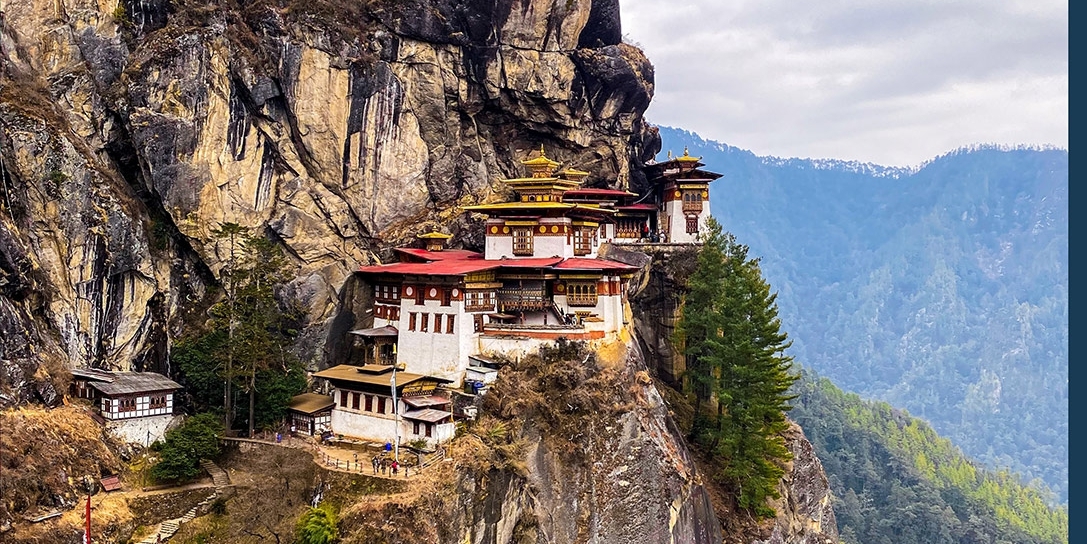
Bhutan, a small landlocked country nestled in the eastern Himalayas, is often referred to as the "Land of the Thunder Dragon." With a rich cultural heritage, stunning landscapes, and a strong commitment to preserving its environment and traditional way of life, Bhutan offers a unique and unforgettable travel experience.
Bhutan is a country that prides itself on its sustainable tourism model. Visitors to Bhutan must pay a daily tariff, which includes accommodation, food, transportation, and a licensed tour guide. This ensures that visitors have a high-quality travel experience while also supporting the country's efforts to protect its natural environment and cultural heritage.
One of the must-visit places in Bhutan is the capital city, Thimphu. Here, visitors can explore the National Memorial Chorten, a stupa built in honor of Bhutan's third king. The Folk Heritage Museum, which showcases Bhutan's traditional way of life, is also worth a visit. Additionally, the weekend market in Thimphu offers a colorful display of local handicrafts and traditional food.
Another highlight of a Bhutan tour is the Punakha Dzong, a stunning fortress situated at the confluence of two rivers. The dzong served as the capital of Bhutan until the mid-20th century and is a prime example of traditional Bhutanese architecture. Visitors can explore the dzong's courtyards, temples, and administrative offices while learning about Bhutan's rich history.
For nature lovers, Bhutan's landscape is a paradise. The country is home to several national parks and wildlife reserves, including the Jigme Dorji National Park, which is the largest protected area in Bhutan. Visitors can spot rare animals such as the snow leopard, Bengal tiger, and red panda, as well as enjoy hiking and camping in the park's stunning mountain scenery.
One of the most iconic images of Bhutan is the Tiger's Nest Monastery, a sacred site perched on a cliff 900 meters above the Paro Valley. Legend has it that Guru Rinpoche, an important figure in Bhutanese Buddhism, flew to this site on the back of a tiger and meditated there for several years. Visitors can hike up to the monastery and admire its intricate architecture and stunning views of the surrounding valley.
In addition to its natural beauty and cultural heritage, Bhutan is also known for its festivals or tsechus. These colorful events are held throughout the year in different parts of the country and feature masked dances, traditional music, and religious ceremonies. The Paro Tsechu, held in the spring, is one of the most popular festivals and attracts visitors from all over the world.
Finally, no visit to Bhutan would be complete without trying the local cuisine. Bhutanese food is a unique blend of Indian and Chinese influences, with a focus on spicy chili peppers and locally grown rice. Visitors can try dishes such as ema datshi (a spicy cheese and chili dish) and momos (dumplings filled with vegetables or meat) while sipping on suja, a traditional butter tea.
Bhutan tour offers a rare opportunity to experience a country that has successfully balanced economic development with cultural preservation and environmental conservation. Visitors can immerse themselves in Bhutan's rich history, stunning landscapes, and unique way of life while supporting the country's efforts to maintain its unique identity in a rapidly changing world.
